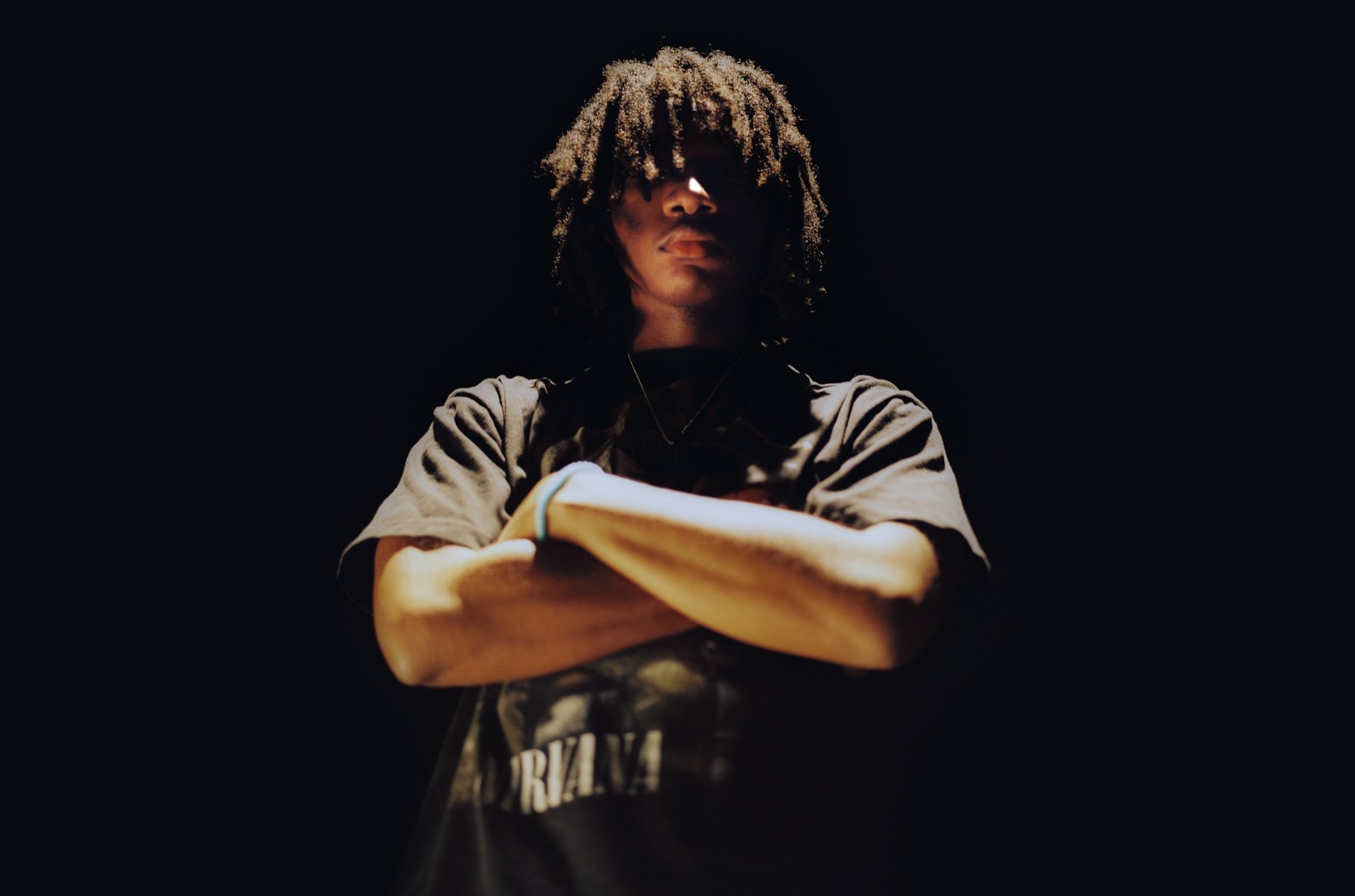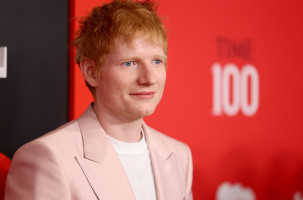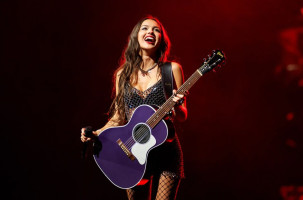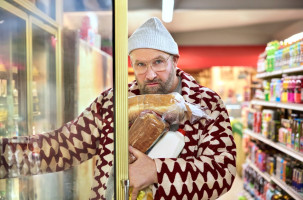Hip-hop continues to evolve at a rate that only accelerates over time. And while various circumstances dictated past and present developments in hip-hop’s timeline, rising MCs such as Kenny Mason represent a rare group of artists who take it to another level, as evidenced in his newest album, Angelic Hoodrat: Supercut.
Released last month, Angelic Hoodrat: Supercut is a continuation of his 2020 effort Angelic Hoodrat, and witnesses him further exploring the sounds and influences of hip-hop and rock that have defined his life since childhood. “All of those video games such as Madden, Tony Hawk’s Pro Skater, ATV vs. MX, and WWE Smackdown vs. Raw put me on to acts such as Rage Against the Machine,” Mason tells Billboard. “From there, I would go on YouTube and find other artists to listen to and study.”
Upon listening to Angelic Hoodrat: Supercut, which consists of twelve tracks, the West Atlanta, GA native has the balance of appreciating both genres, blending the two of them if needed, or excelling in either area alone. For the fans who enjoy Mason’s rap records, they’ll witness his flows and punchlines stay up to speed (“Fasho”) or perfectly accompany his co-stars Denzel Curry (“A+") and Freddie Gibbs (“Much Money”). Yet, if you enjoy Mason’s venture into rock, his vivid and emotional songwriting will maintain your attention, while also creating a space for introspection (“Breathe Again” and “4ever”).
Following the release of Angelic Hoodrat: Supercut, Mason spoke to Billboard about his new project, his growth as an artist during this pandemic, whether or not he’s challenging society to look at black music differently, and more.
In the last year and change, you’ve witnessed your profile grow quite a bit. Has your life changed because of that?
There hasn’t been much difference, to be honest. I haven’t felt it yet -- because I’m inside [the house] just making music, and we also haven’t performed. Even though I recently went to a restaurant where some people recognized me, I haven’t experienced that change in my life yet. Maybe that will happen when we start performing again, and even then, I will always be the same [laughs].
One thing that has appeared during your come-up is the comparisons to Kendrick Lamar and Lil Wayne. How does one handle that at this point in their career?
I’m appreciative of the people who have those kind words and feelings to express about me, but I can’t take it personally. It’s the same thing for someone who wants to hate on me. I try my best to stay focused on what matters most, because although I appreciate those comparisons, and it’s a fact -- I studied Kendrick and Wayne closely -- I don’t ever want to settle and get caught up in that. It’s all about finding the balance of appreciating those kind words while also not falling into them.
With Angelic Hoodrat: Supercut, we witness you take another step in this journey of blending hip-hop and rock music. How extensive has this process been?
It’s taken a lot of years, for sure. I have and still am trying to get it right. For a while, I was only rapping because I wanted to prove I can rap, so I didn’t put out any alternative sounds, although I was experimenting with them. As a matter of fact, I only released one, and it was called “DS,” and it sounded like some Jimmy Eat World and Foo Fighters s--t.
But it was tough, man. I’m in Atlanta and didn’t know if people would support it -- and lastly, those songs weren’t ready to come out. But then I met [producer] Julian Cruz. Julian understood what I was trying to do, took what I had in mind, and brought them to life.
In recent years, we’ve seen more of your peers do the same thing musically and be embraced by the masses. Is that a big deal for you?
Although it hasn’t been a big deal to me, I’m still happy that’s the case [that the masses embracing more hip-hop and rock mashups]. People have to understand rock has always existed in hip-hop, whether we’re talking about the Beastie Boys, Run-DMC, or Eminem incorporating those elements. Heck, one of my favorite songs ever, “99 Problems” by Jay-Z, has that incredible riff in it while also being very gritty and grungy.
More than anything, it’s the swagger and lifestyle that enables its stay within the culture. People are buying into it, thus wanting to embody it too. That’s why the music feels bigger than life. But for me, it’s the sonics that I love most. The feeling I get from hearing a guitar play or when doing my vocals are a certain way. I want to see this lead to something else that’s new. Did you hear Willow’s new s--- [“t r a n s p a r e n t s o u l”]?
It’s crazy.
So crazy, shawty! I’ve been playing it all day. Now the sonics of that record and what she did is dope to me. I love it.
One thing, I’ve learned about artists like yourself is the number of influences that ultimately shape your sounds. How have you balanced the influence that come from your personal life, career and creatively?
It’s a matter of allowing yourself to be inspired. Inspiration is all around you and should be tapped into if you give it a chance. Everything I make comes from my inspiration and experiences. I think about my homies who are from the same hood as me, experienced the same things, and how we listened to alternative music the same way we listened to Gucci [Mane]. We live, and then we write about it. I don’t think writer’s block is real -- to be honest.
What makes you say that?
Because if you’ve been alive for 20 years or however long you’ve been alive for, you have something to say. There’s always something on your heart or mind, whether it’s good or bad, to be expressed. I can’t imagine going through a time where I wouldn’t have something to say or couldn’t find a way to say it. I know someone may disagree with me, but that’s how I feel. [Laughs.] It will always be about perspective, whether it’s yours or someone else’s, and if you’re OK with dealing with the consequences of saying what you have to say.
Do you feel through your music and after naming consecutive projects Angelic Hoodrat that you’re challenging people to look at Black music differently?
I probably am, but I’m not consciously doing it. I’m just making the music that not only I want to hear, but someone else does too. But with that said, I understand the importance of this situation. As a Black man in this country, I’m always going to be challenging to other people and assumed I’m making a statement, and you know what? I love it. Sometimes, statements have to be made because social norms need to be broken at the end of the day, especially when they’re toxic. And I stand on that.
When it’s all said and done, what do you hope the people understand most about Kenny Mason?
Respectfully, bro, I don’t care if they understand me. [Laughs.] I’m not begging anybody to understand me. I’m just trying to exist while I’m here, shawty, and be myself at all times. If anything, I hope they understand that because there’s nothing I can do if they don’t. I remember the days where I was making music, and nobody cared outside of my homies, and now other people are enjoying it the same way. I’m wired to create, and that’s what I’m going to do.
